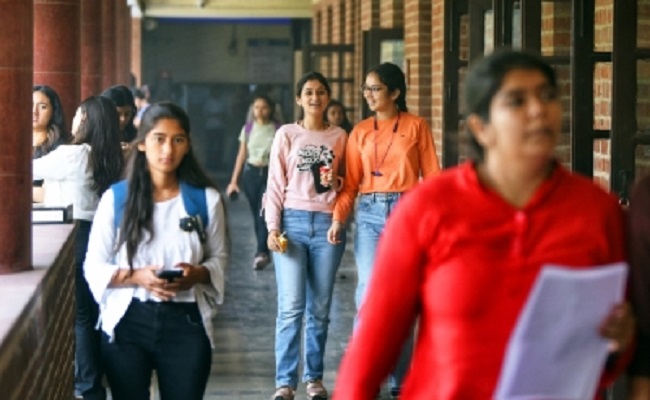
Indian students and professionals in the United States are growing increasingly anxious as the US government considers tightening rules for the Optional Practical Training (OPT) program.
OPT is a crucial bridge for many international students seeking work experience and transitioning to H-1B visas.
Recent political debates have labeled the program as unfair to American workers, leaving thousands of Indian students uncertain about their future.
In the 2022-2023 academic year, around 69,000 Indian students participated in OPT, a testament to its importance.
However, with rising scrutiny and echoes of restrictive policies from former President Donald Trump’s era, the future of OPT and Curricular Practical Training (CPT) is once again in question.
OPT allows F-1 visa students to work for 12 months before or after graduation.
STEM students (Science, Technology, Engineering, Mathematics) can extend their OPT for an additional 24 months, offering up to 36 months of work authorization.
CPT, on the other hand, offers work experience tied directly to a student’s coursework. CPT can be part-time or full-time, but completing more than 12 months of full-time CPT makes a student ineligible for OPT.
Both programs require approval from university Designated School Officials (DSOs) and, for OPT, authorization from US Citizenship and Immigration Services (USCIS).
At a US House Judiciary Committee hearing on January 22, 2025, Jessica M. Vaughan, Director of Policy Studies at the Center for Immigration Studies, criticized OPT and CPT as unauthorized by Congress and riddled with fraud.
She claimed they have enabled the largest guest worker population in the US, with over 540,000 former students working under minimal oversight.
"They should be eliminated or much more closely regulated," Vaughan argued, highlighting concerns about diploma mills issuing fake work authorizations.
In 2022, a lawsuit filed by the Washington Alliance of Technology Workers (WashTech) claimed that OPT helps employers bypass the H-1B visa cap, harming American workers.
Fraud and security risks have fueled the controversy.
In 2016, the US government created the fake University of Northern New Jersey to expose fraudulent CPT users.
Jon Feere, former chief of staff at US Immigration and Customs Enforcement (ICE), voiced concerns about the lack of proper regulation, calling for stricter oversight.
The scale of these programs is significant. In FY 2023, 539,382 foreign students participated in OPT, STEM OPT, and CPT—far exceeding the numbers for H-1B visas, which have an annual cap.
Of these, 276,452 were on standard OPT, 122,101 on STEM OPT, and 140,829 on CPT. Unlike the H-1B visa, there is no limit on the number of participants in these programs, which has sparked debate about their potential misuse.
Vaughan has suggested tightening regulations for schools issuing visa paperwork and revoking certifications for institutions with high overstay rates.
Jon Feere proposed limiting OPT to fields where practical training is essential for all students, ensuring it fulfills an educational purpose rather than serving as a loophole for cheap labor.
Universities have strongly defended the program, emphasizing that OPT is vital for attracting international students who contribute billions of dollars to the US economy.
Institutions like the University of California, Berkeley, offer extensive support for OPT, promoting it as a critical tool for gaining real-world experience.
Leading tech companies, including Google, Microsoft, and Amazon, regularly hire international students through OPT for roles in software engineering, data science, and product management. These companies value the diverse skills and perspectives that international talent brings to the workforce.
With no confirmation of changes yet, the future of OPT remains uncertain.
If the proposed restrictions come into effect, they could dramatically impact thousands of Indian students and other international professionals relying on these programs as a stepping stone to a career in the US.













